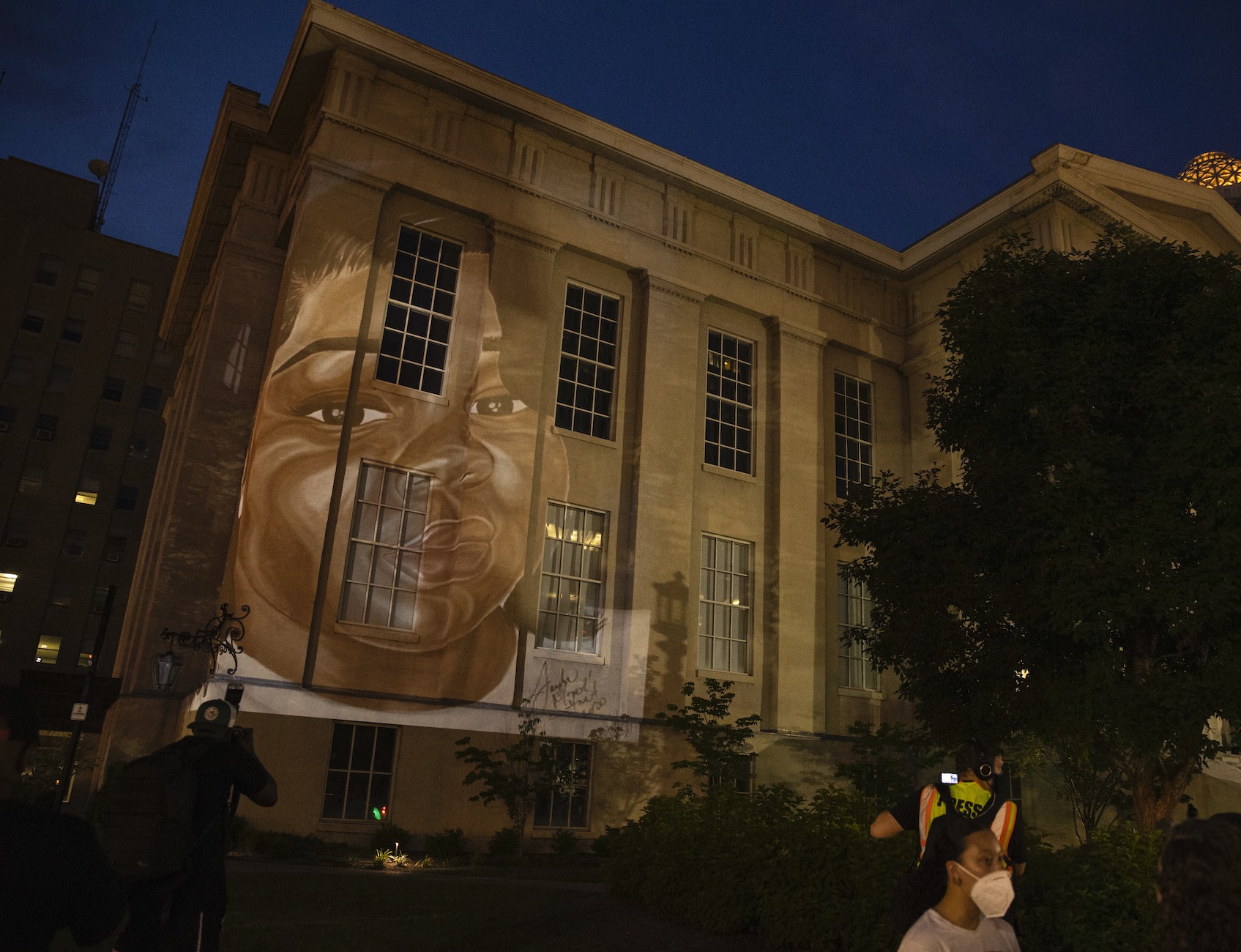Louisville Metro Council Bans No-Knock Raids Following The Police Killing of Breonna Taylor
Breonna Taylor was killed nearly three months ago during a no-knock raid. All 26 members of the Metro Council have signed on as co-sponsors to “Breonna’s Law,” which would ban them.

Nearly three months after Louisville, Kentucky police shot and killed Breonna Taylor while serving a no-knock warrant at her home, the Metro Council unanimously passed a comprehensive ban on no-knock police raids.
Earlier in the day, all 26 members of the Council signed on as co-sponsors to the ordinance, which is entitled “Breonna’s Law.” They voted on it Thursday evening.
“No matter what your political party, people are standing together and saying that we refuse to allow the life of Breonna Taylor to be in vain,” Councilmember Jessica Green told The Appeal. “It is due to nothing but the will of the people and our community.”
No-knock warrants allow officers executing search warrants to forcibly enter premises without first announcing themselves. Just after midnight on March 13, police conducting a narcotics investigation burst into the apartment of Taylor, a 26-year-old Black woman and emergency medical technician. Taylor’s boyfriend, 27-year-old Kenneth Walker, retrieved a gun and shot at the officers, believing them to be intruders. Officers returned fire, hitting Taylor at least eight times, killing her.
In the incident’s aftermath, the Louisville Courier-Journal reported that Taylor was not the main subject of the underlying investigation, which was instead focused on two men accused of selling drugs at a location more than 10 miles away. Taylor’s apartment was included in the warrant because authorities believed it was used to receive drugs as part of that alleged operation, according to the Courier-Journal. Police found no drugs in her apartment.
Police have since said they knocked and announced themselves before forcibly entering the home—claims that Walker, Taylor’s family, and neighbors disputed. Walker was initially charged with attempted murder of an officer whom he shot in the leg; those charges were later dropped. Taylor’s family has filed a wrongful death lawsuit against the officers involved, and the FBI is investigating; to date, none of the officers have been charged with any crime.
Originally, the Metro Council had considered several partial no-knock raid bans that would have created additional oversight mechanisms for the raids’ usage. But over the past several weeks, Councilmember Brandon Coan told The Appeal, support within the Council grew for more ambitious reforms. “Everybody has finally come to agree that there’s really no legitimate reason to have no-knock search warrants,” he said. “On balance, the risk to human life does not outweigh whatever evidentiary benefit may accrue from them.” Given the Council’s projected unanimity, he said he anticipates Mayor Greg Fischer will sign the ordinance quickly.
The ordinance requires law enforcement officers serving future warrants to knock and identify themselves as law enforcement in a manner that can be heard by the occupants. Absent “exigent circumstances,” police must wait at least 15 seconds or for “a reasonable amount of time for occupants to respond”—whichever is greater—before entering. The ordinance also mandates the use of body cameras throughout the process of serving a warrant.
According to Green, the last councilmember did not formally sign on as a co-sponsor to Breonna’s Law until around noon local time on Thursday.
Experts and public officials alike have long recognized that no-knock raids, the use of which expanded significantly in the 1990s during the War on Drugs, are inherently dangerous. Police conduct them using military gear, including flash-bang grenades, battering rams, and automatic weapons, in an effort to disorient and confuse their targets. A 2017 New York Times analysis found that SWAT-style drug raids have caused the deaths of nearly 100 people, including 13 law enforcement officers, from 2010 through 2016. And no-knock raids have a disproportionate impact on communities of color; a 2014 ACLU study of several U.S. cities found that at least 54 percent of people impacted by SWAT teams executing search warrants were Black or Latinx.
Polling conducted by Data for Progress and The Justice Collaborative Institute found that 53 percent of voters now “entirely” oppose the use of no-knock raids. (The Justice Collaborative Institute and The Appeal are both independent projects of The Justice Collaborative.) Nearly three-quarters of voters of both parties—74 percent of Democrats and 72 percent of Republicans—say no-knock raids should be limited to “exceptional circumstances” when police are investigating crimes that involve the risk of serious injury or death. Oregon state law prohibits the use of no-knock warrants, and the Florida Supreme Court has banned them, too, citing their “staggering potential” for unnecessary violence.
